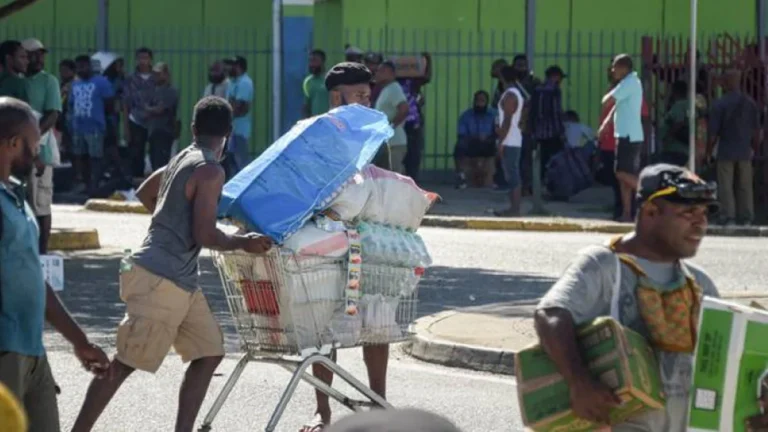The country’s capital witnessed a significant military presence as a response to the unrest that resulted in 16 fatalities across Papua New Guinea’s two principal cities.
Prime Minister James Marape has committed to reinstating order following the violent protests in Port Moresby on Wednesday night, which saw the looting of stores, destruction of property, and arson incidents.
In response to the chaos, Marape declared a 14-day state of emergency in the capital on Thursday, vowing that those responsible for the “lawlessness” would face consequences.
To enhance security, 1,000 troops were readied, leading to the reopening of various businesses such as banks, fuel stations, and supermarkets starting Friday.
Port Moresby’s inhabitants noticed a marked improvement in the situation. “Businesses have resumed, gas stations are operational, and public transport is functional. There’s a renewed sense of tranquility,” shared Maho Laveil, a local resident and economics professor.
Laveil observed a noticeable increase in police and military personnel in the city, especially during the night.
The initial spark for the violence in Port Moresby was a strike by a coalition of soldiers, police officers, and prison guards, prompted by unexplained deductions in their salaries. The turmoil quickly escalated as dissatisfied civilians joined in and spread to Lae, situated about 300 kilometers north.
By Friday, police and health authorities reported that the death toll in both cities had reached at least 16.
Acknowledging the legitimate grievances of the security forces, Marape assured that the government would rectify what it termed a payroll “error.” However, he firmly stated that any form of “lawlessness and recklessness” would not be excused.
Referring to a similar incident in 2018 involving a pay dispute that led to security personnel vandalizing the nation’s parliament, Marape emphasized, “Enough is enough. This behavior must stop.”


